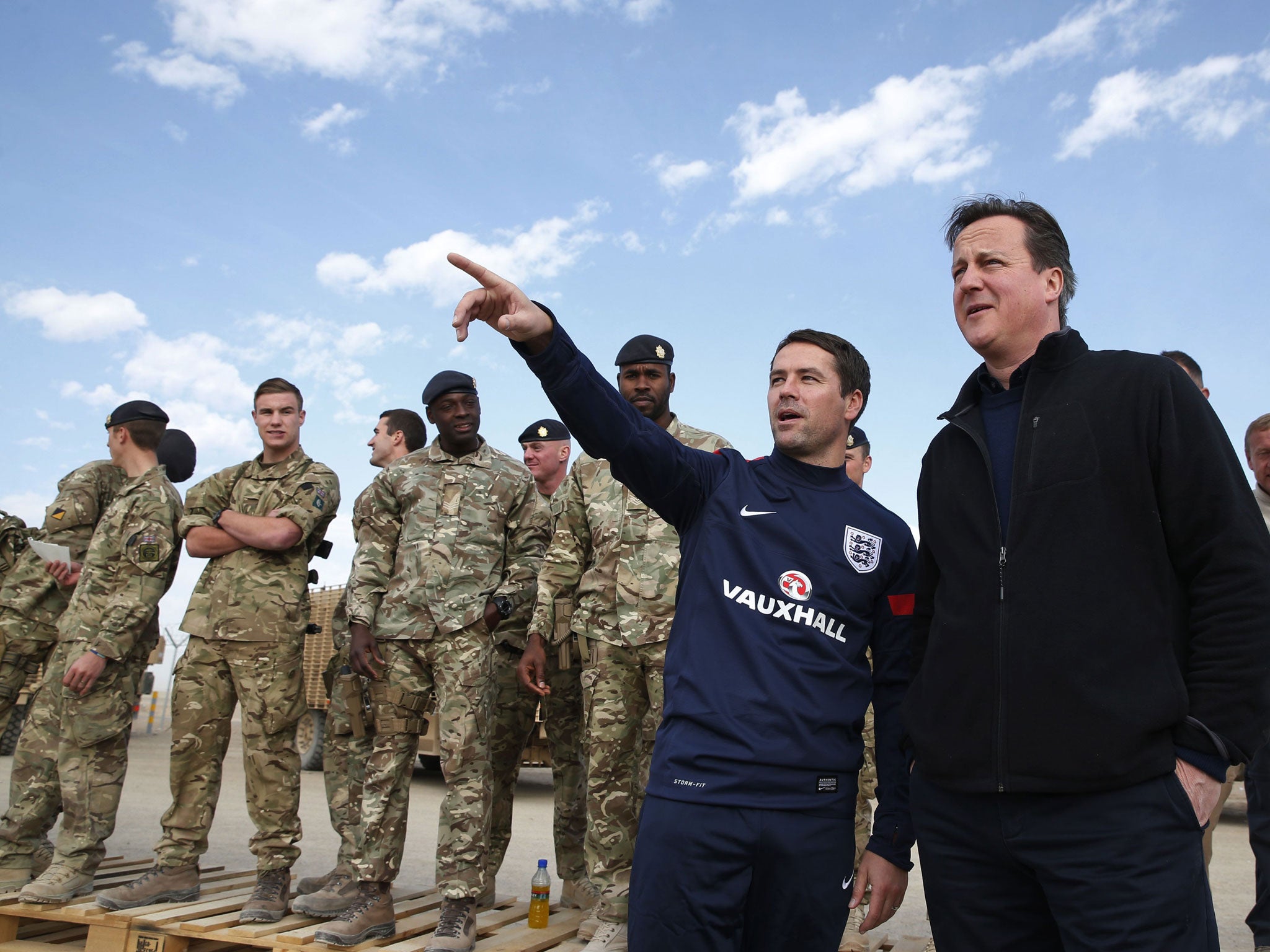Afghanistan mission accomplished? Tens of thousands dead. Billions spent. So, is the country really any better off?
The Prime Minister declared mission accomplished in Afghanistan. Peter Popham analyses the truth in the claim

SECURITY
The PM immediately qualified his words by saying that “a basic level of security” has been established since British troops arrived, “so [Afghanistan] doesn’t become a haven for terror. That is the mission… and I think we will have accomplished that mission.”
But Mr Cameron’s claim conflates two separate security questions. The West’s casus belli in 2001 was that al-Qa'ida’s headquarters were in Afghanistan. That is no longer the case, as Osama bin Laden’s presence in Abbotobad, northern Pakistan, at the time of his death indicated. But the security of British troops and the bases and other facilities they are in Afghanistan to defend, is quite another matter.
Since 2001, 446 British troops have died, and the Taliban are a growing menace in many parts of the country. A recent report by the US said that, while 68 per cent of the country was safe for reconstruction in 2009, the proportion has since shrunk to 45 per cent and is predicted to halve next year, leaving only “oversight bubbles” in Kabul, Kandahar and Herat.
WOMEN’S RIGHTS
At the time of the 2001 invasion, women’s rights were non-existent. Girls were barred from going to school, even in Kabul: the only such schools that existed operated in secret. Under the draconian version of Sharia law imposed by the Taliban, women were barred from working, obliged to wear the burqa and could only move around in the company of a male relative.
In the past year the situation has been revolutionised, thanks to the determined efforts of western governments and NGOs. It was claimed in 2011 that 2.4 million Afghan women were studying; in the past five years, 120,000 girls have graduated from high school while today 40,000 are in higher education. There is a quota for women MPs, and in 2009 a law for the Elimination of Violence Against Women was passed.
But all this progress is going into reverse as the western pullout gets under way. The quota for female MPs has already been cut from 25 to 20 per cent, while legal bans on child marriage, forced marriage and an unrestricted right to education have been thrown out by parliament as “un-Islamic”. If, in a few years, the western-backed political establishment were to be overturned by the Taliban, it is likely that Afghanistan’s women would soon be back to square one.
THE ECONOMY
Afghanistan was one of the poorest countries in the world when British troops arrived in 2001. That situation has since been transformed, but almost entirely thanks to foreign aid, which in 2010 accounted for about 97 per cent of GDP. Afghanistan’s mountains conceal great unexploited mineral wealth, but if investors are leery about mining today, their assessment of the risks can only get worse as foreign troops pull out.
The long impasse between President Hamid Karzai and the US over the signing of a bilateral security agreement has already taken a toll on business confidence, and presidential elections in the spring will increase anxiety. Growth, which jumped to 14 per cent last year thanks to a bumper harvest, has since slumped to 3.1 per cent. Unemployment remains high. The overall prognosis is grim.
CORRUPTION
The West bought local support for the invasion with hard currency, which has created a tiny, super-rich elite, thriving off the proceeds of corruption. This in turn has purchased the elite’s consent to western-inspired reforms, while alienating and disgusting the mass of poor Afghans who get no benefit from it.
The Taliban won the support of many ordinary Afghans not because of their primitive religious beliefs but because they claimed to be, and in many cases actually were, honest. When they make their expected comeback, that, once again, will be their appeal to the masses.
Join our commenting forum
Join thought-provoking conversations, follow other Independent readers and see their replies
Comments